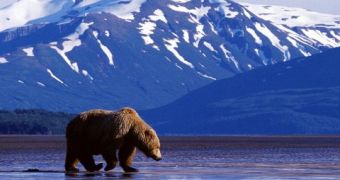Seeing how, once it hits the water, oil can be quite tricky to clean up, Royal Dutch Shell is now trying to make sure that, should it begin drilling in the icy waters near Alaska, any accidents that might occur can be dealt with promptly and efficiently.
Apparently, said global oil and gas company has plans of drilling some exploratory wells off the north shore of Alaska as early as this summer.
As one can easily guess, environmentalists and conservationists are not in the least pleased with this idea, so one might argue that Shell's decision to train 200 spill responders can be linked to their wanting to re-assure these green-heads that things are well under control when it comes to environmental protection.
More so given the fact that, just two years ago, the Deepwater Horizon oil spill released 4.9 million barrels of crude oil into the waters of the Gulf of Mexico in just one day.
However, environmentalists argue that, with or without proper training, people have not even once succeeded in gathering up more than 3-10% of the oil that somehow leaked into the water.
As NPR explains, this is because, once it reaches our seas and our oceans, oil spreads quite rapidly and is therefore is very difficult to contain, let alone collect.
Shell's plans of dealing with water oil spills involve “corralling” said liquid, which basically means trapping it inside a circle made of rubbery material.
The same source informs us that Geoff Merrell, one of Shell's employees who is in charge of supervising drilling operations in Alaska, explained that “In this way the oil would be prevented from spreading out over the water's surface in a large geographic area.”
However, Roger Rufe, who used to work with the Coast Guard in Alaska, believes that “I don't think anybody's really proven they can clean up a spill very effectively in the ice.”
From where we stand, although it is a good thing that companies such as Shell seem willing to invest in environmental protection, perhaps it would be best if we could find ways of entirely giving up on oil and gas drilling in the future.

 14 DAY TRIAL //
14 DAY TRIAL //